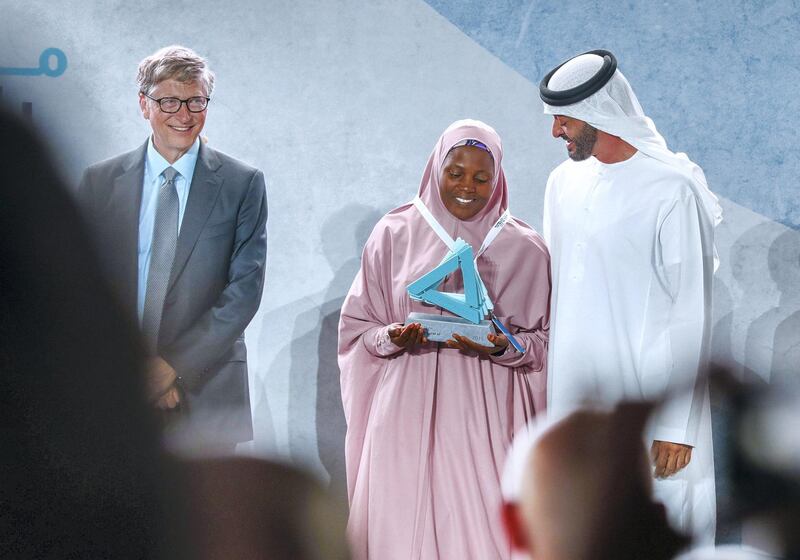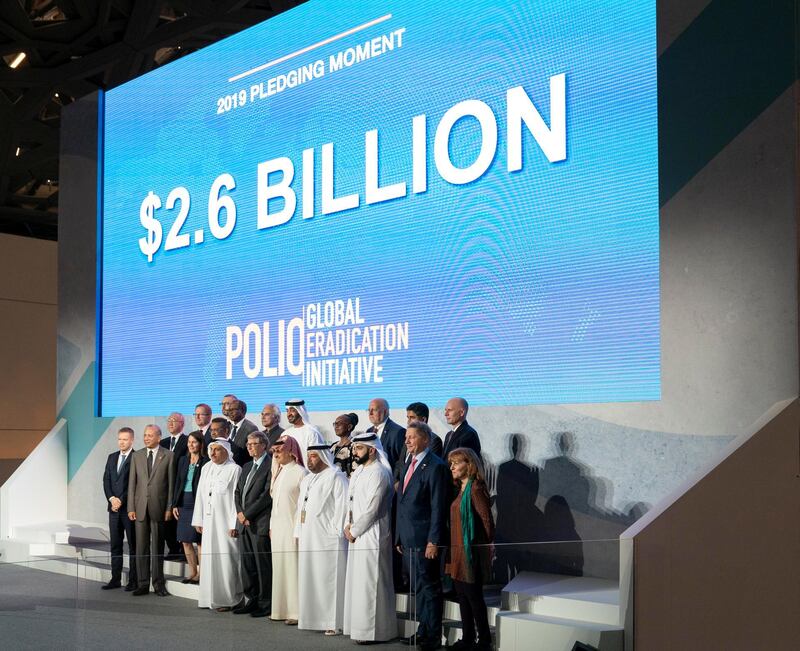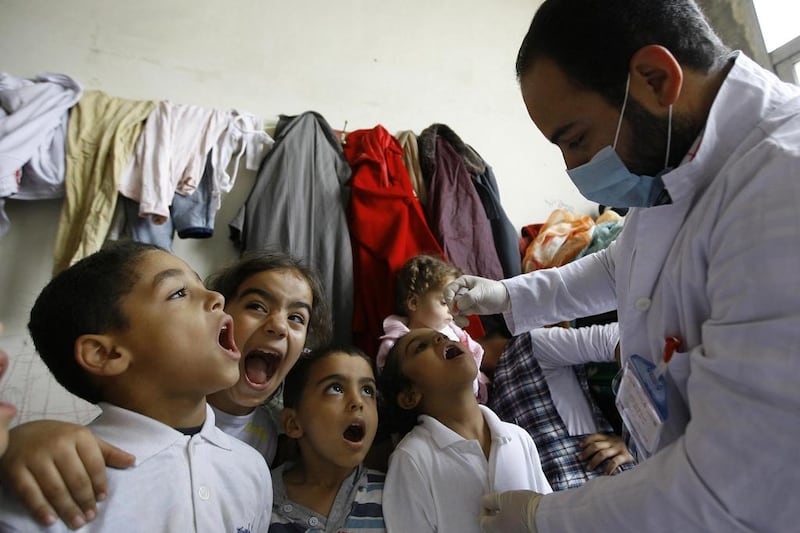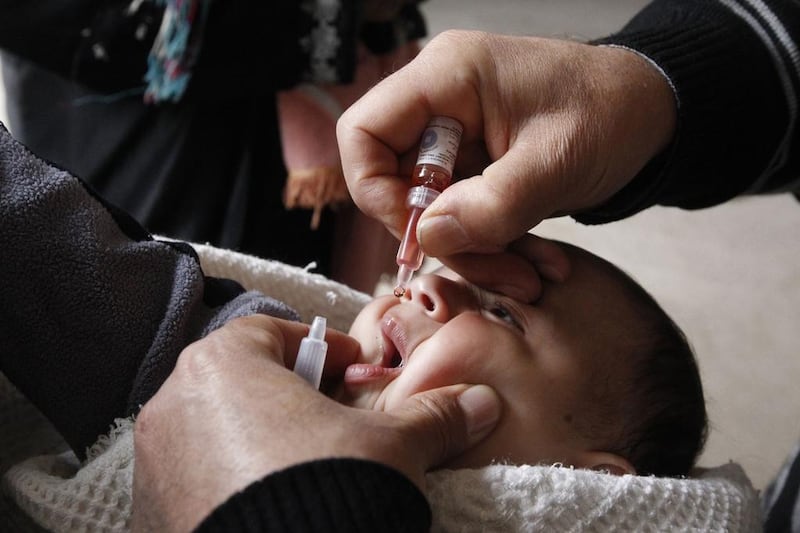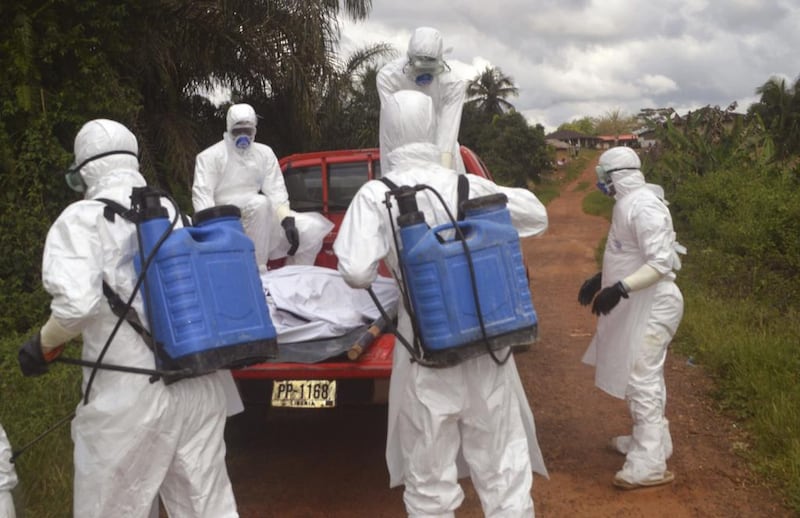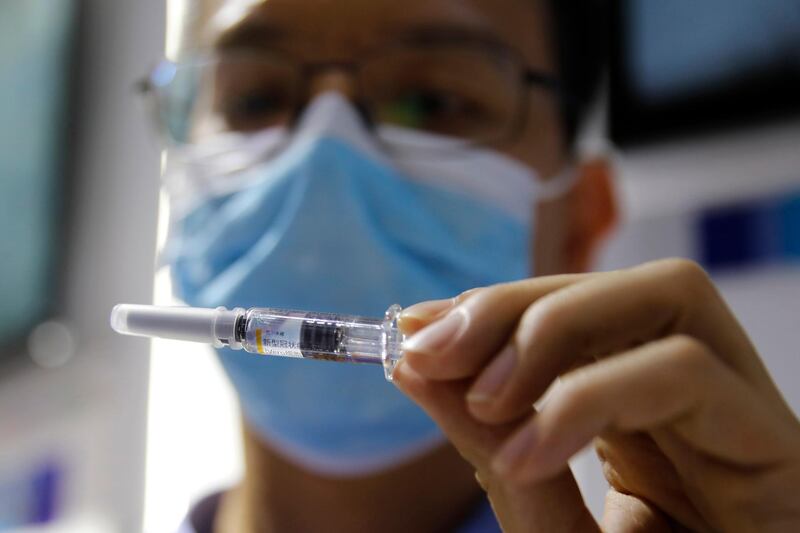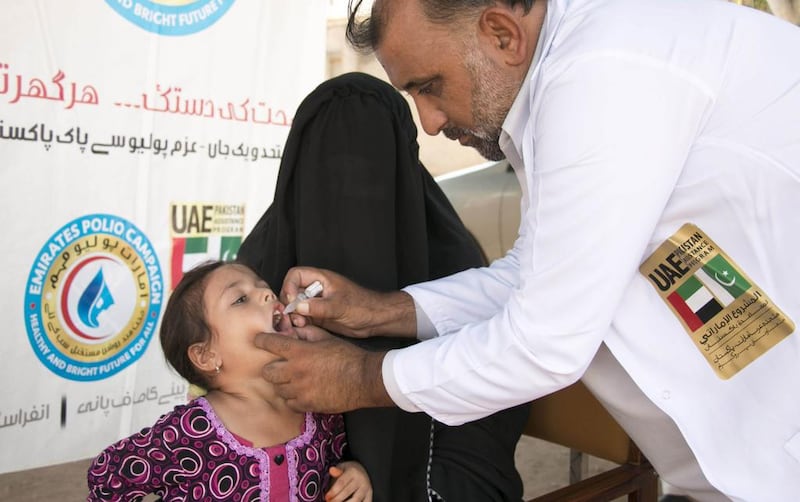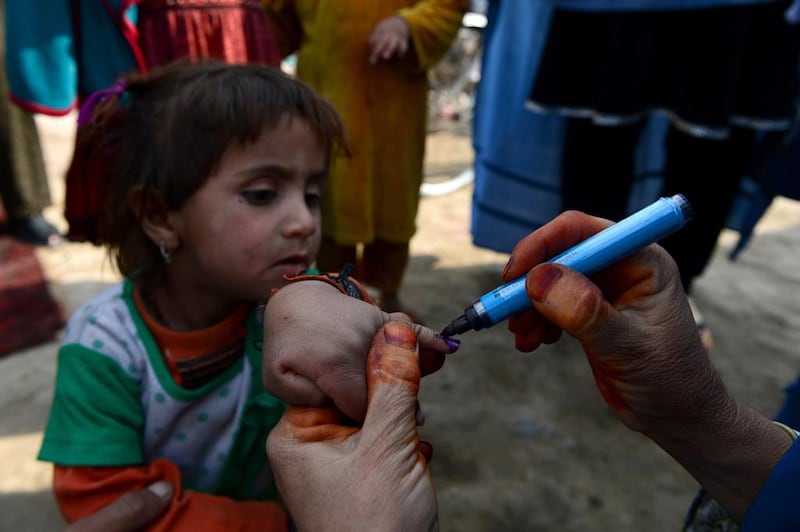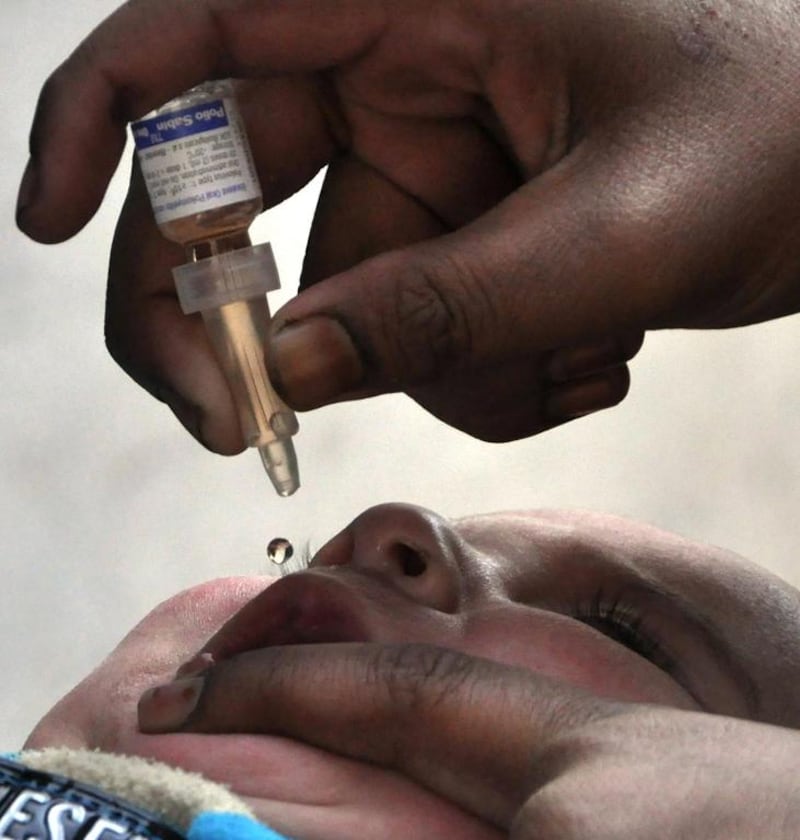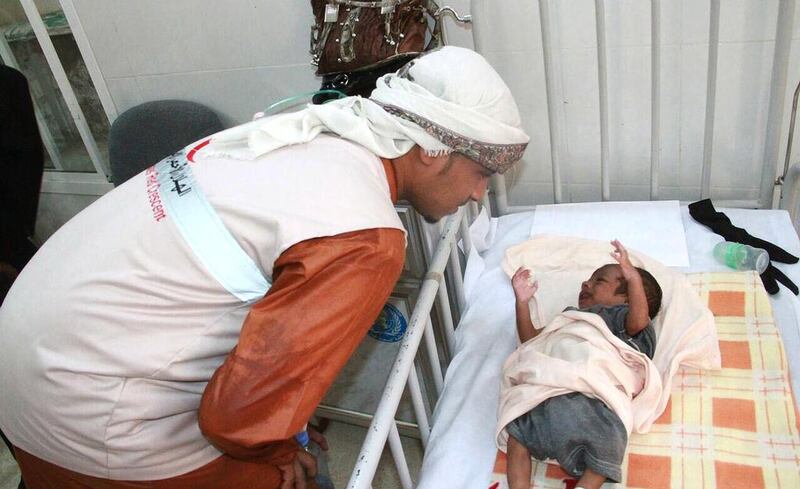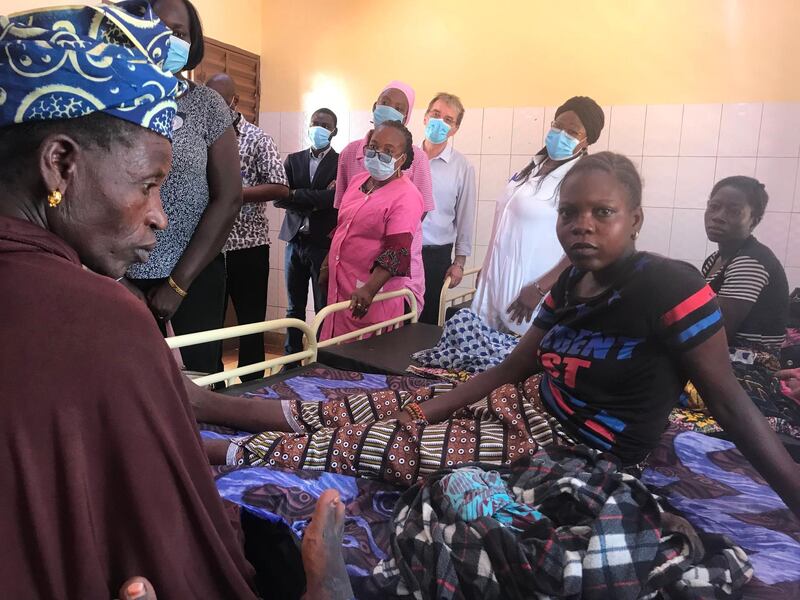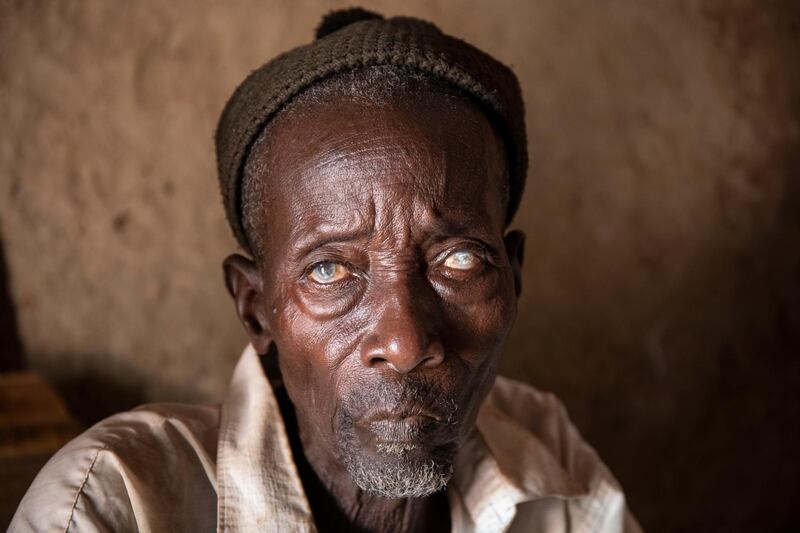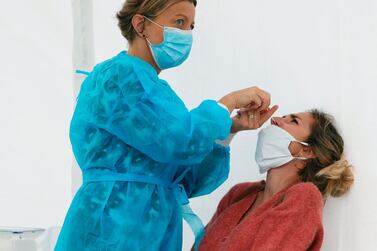The burden of Covid-19 could set back the fight against malaria by 20 years and lead to hundreds of thousands of deaths, a former top UN official said.
Simon Bland, chief executive of the Abu Dhabi's Global Institute for Disease Elimination, said the impact of the pandemic has already set back eradication programmes for other diseases.
In the case of malaria, "the worst-case scenario is you get a doubling of deaths ... from about 400,000 now to almost 800,000", he told The National.
He estimated the fight against the disease, which kills thousands of children each year, could be set back two decades.
Progress against tuberculosis, HIV and polio, which is close to eradication, could also be lost.
Researchers, governments and labs around the world have rallied to find a vaccine for coronavirus, diverting resources to tackle a disease that has killed at least a million people and left many with lasting symptoms.
Mr Bland, who held senior positions in the UN’s Aids-fighting agency and the British government before leading Abu Dhabi’s new research institute, said his great fear was that disruption caused by Covid-19 will last far longer than predicted.
“That disruption is likely to lead you to higher cases and higher deaths from malaria, tuberculosis, HIV and those other diseases that are that are a problem across Africa,” he said.
The lesson of Covid-19 is that “pandemics come and go, and there will be another one, and eventually, there’ll be one that is a real disrupter”.
“Honestly, this could be much worse – this could be a disease that has a higher mortality rate,” he said.
Scientists are still modelling the impact of the virus on other illnesses. These include what are known as Neglected Tropical Diseases, which despite being little known in western countries have brought ill-health and hardship to millions.
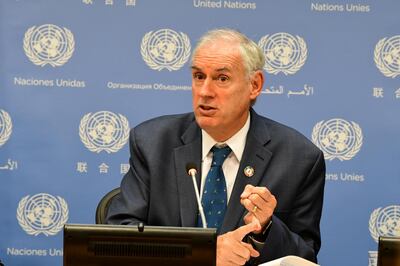
The Bill and Melinda Gates Foundation and the UAE have brought donor conferences to Abu Dhabi to raise cash to tackle them.
In November 2019, Mr Gates, businessman and former mayor of New York Michael Bloomberg and Sheikh Mohamed bin Zayed, Crown Prince of Abu Dhabi and Deputy Supreme Commander of the Armed Forces, were among those to pledge $2.6 billion in the fight against "forgotten diseases".
The NTD Modelling Consortium at the University of Oxford predicted that anti-disease efforts could recover from a short delay caused by the pandemic, but longer hold-ups would require more resources and thus cause a “greater burden of morbidity”.
It singles out the parasitic worm disease schistosomiasis, also known as bilharzia, and the bacterial eye disease trachoma as of particular concern.
Examining goals for seven neglected tropical diseases, the modelling indicates that at least three could miss the 2030 goal of their elimination as a public health problem.
Polio vaccination programmes resumed in Pakistan and Afghanistan in July after a four-month pause. They are the only countries in the world where what is known as wild polio still occurs naturally in humans, and eliminating the disease has proved challenging.
The latest figures, released on September 23, show 37 cases of wild polio were recorded in Afghanistan and 65 in Pakistan this year. This compares with 29 cases for Afghanistan in the whole of 2019 and 147 in Pakistan, which had registered 67 cases at this point last year.
Abu Dhabi’s new institute will focus on eliminating five diseases – polio, malaria, river blindness, lymphatic filariasis and measles – regionally or globally.
Mr Bland, who previously ran the UNAIDs programme to fight HIV, has long sounded warnings of the potential for disease to rebound if not controlled.
There is some good news, though, from the pandemic. The infrastructure for eradication campaigns in Pakistan has been adapted to fight Covid-19, while Nigeria, which was at last declared polio-free this year, has learnt from its experience of Ebola.
“Repurposing the polio infrastructure and emergency operation centres to handle [Covid-19] was a really strong lesson,” Mr Bland says.
The impact of coronavirus on Africa has also not been as devastating as was feared.
“There’s some hope fully understanding what’s going on in Africa, with Covid,” Mr Bland says.
“The potential good news is that Africa is, by and large, a continent that understands infectious disease, of which it has a high burden relative to the rest of the world.
“It’s dealt with issues like malaria, tuberculosis, HIV, outbreaks of Ebola. It’s had in place community health, testing and tracing – it’s done a lot of things that that we actually haven’t done in the West.”
For the world, fighting Covid-19 is a question of whether countries will take a protectionist approach, particularly in sharing drugs and potential vaccines, or accept that “we’re in this together – let’s really learn from one another and work effectively together”.
“That this it is a huge challenge right now,” Mr Bland said. “And I don’t quite know where that ends.”
